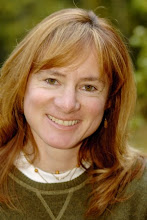So, how do you begin writing a story? As I sat across the table from Willie Hensley today, sipping Kaladi coffee and listening to him talk about his new book, "Fifty Years From Tomorrow," I wondered, "How could this guy, who has done so much for Alaska, and been so influential in the state's development condense it all into this cluster of pages that I'm holding?"
Listening to him talk, I thought about my own work, mentally compared it to a kindergartner's scribble, and felt it lacking.
Willie's story took more than three years to tell, but I've started reading it and can't put it down. His honesty about growing up in a village is so refreshing after so many Outsider stories that glorify the life of Native Alaskans. That's not to say there is nothing worth glorifying, either, the way he describes summer camp and the beauty of the region outside Kotzebue where he grew up. The descriptions conjure a purer, albeit harder time, and I felt a certain naivety to my own life here in the suburbs of Anchorage, which really isn't what the rest of the state is about at all.
So, having this conversation with Willie made me think: How do you start a story? How do you put one sentence down, keep going and keep going, until you have a book in hand? I should be able to answer that, having written my own book -- but it was a guidebook, more of a resource than the putting-down of feelings and emotions on the page. I've written articles, too -- some of them thousands of words long. But those, too, were the compilation of a specific topic -- a person, a place, a destination -- and the focus became clear early on, making it safe to take that first step.
What I'm getting at is the larger picture of telling a story on many levels. Willie's story, for instance, is about more than just "growing up Native." He touches on morality, humanity, religion, politics, family, love and struggle. He somehow weaves it into a tale that tells more than just the story of his life, but represents an entire culture that is being ambushed by outside influences on a daily basis.
So, he got started on this story. And it grew. And grew. It got so long, his editor made him cut it by 50 percent. He didn't like it, but that's the writer's life, so he did his best.
We talked for an hour. I could've listened to him all afternoon. Articulate, funny, thoughtful and a little bit of a rebel, his stories kept me planted in my seat until he finally announced he had to get back to work. My reason for meeting with him -- to write a short profile on his book for a magazine assignment -- seemed so inconsequential after hearing him talk.
After more than an hour of chatting, I thanked him for his time, tucked my notebook into my bag and got up to leave. Crossing Sixth Avenue to head back to my car, though, I realized I forgot to ask him -- "How did you start? What was that first line that got the book moving along? Is there some easy answer that can make the idea of sitting down to write a book that less daunting?"
I'm dragging my heels. I know it. The book is in there, like a tiny dervish that I'm scared to let free. My nickname, after hiking the Appalachian Trail in 1993, was Chaos. I was named so after the times I'd come into the trail shelters and have what the other thru-hikers called a "pack explosion." One by one, each piece of gear came out of the pack, until a pile of fleece, camp food, cooking gear and sleeping bag/pads were strewn across the shelter floor.
Then, like a bird cleaning its nest, I'd reorganize each piece creating my "home" for the night from my few posssessions.
I want to look at my writing that way, as if I can just have a "word explosion" and then reorganize all that chaos once it's down on paper.
But I'm scared, I guess. I haven't let myself do it, for fear that the words will be empty, the possessions worthless. The Chaos in me remains buried, waiting for that secret formula -- that "first sentence" to propel me forward.
Subscribe to:
Post Comments (Atom)


No comments:
Post a Comment